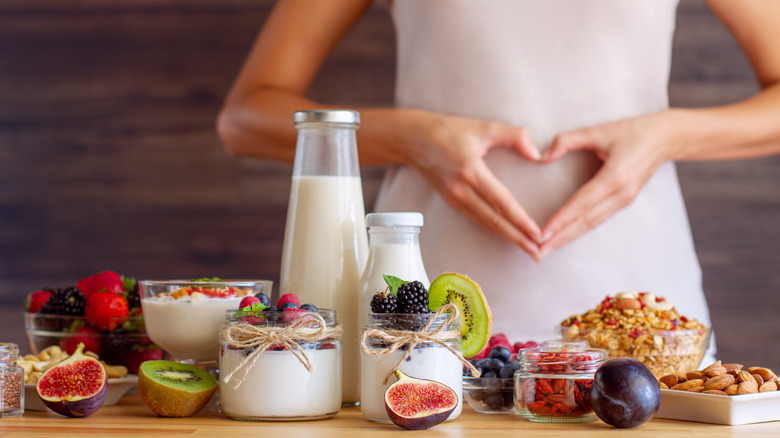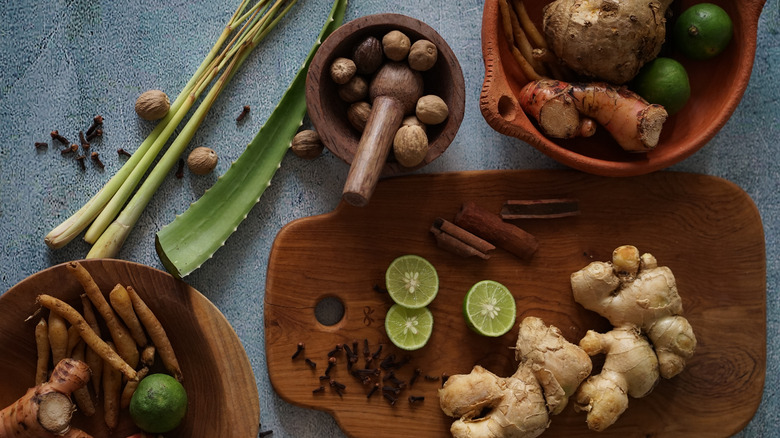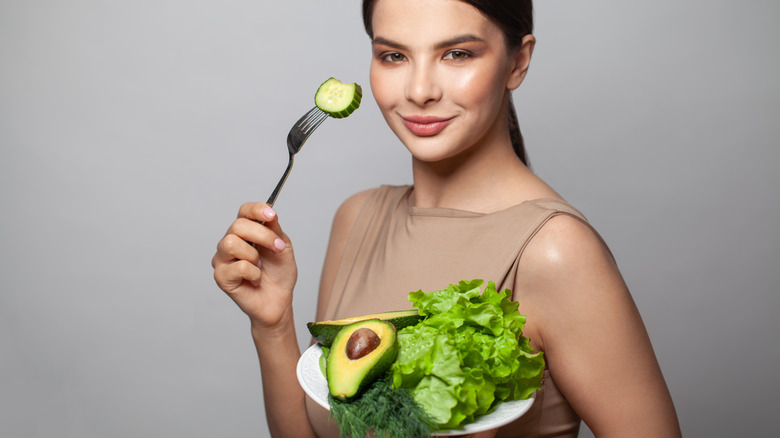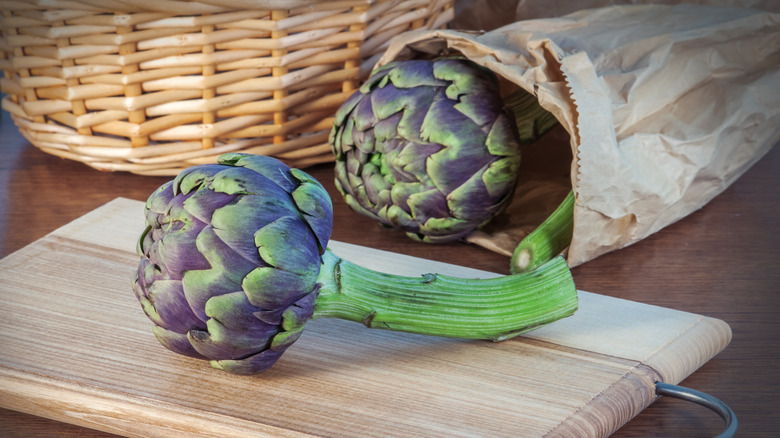Foods You Didn't Realize Can Help Your Digestion
Feeling full and bloated? Are you struggling with constipation? If so, it might be time to change your diet. The key is to fill up on foods that support gut health and keep your digestive system running smoothly.
For example, fermented foods and beverages contain live microorganisms called probiotics that boost the beneficial bacteria in your gut. As a result, they can restore the microbiota and improve digestive function, according to 2018 research published in the journal Foods. What's more, a healthy gut translates to a stronger immune system, enhanced nutrient absorption, and reduced intestinal permeability. Scientists say that yogurt, kefir, and other probiotic-rich foods can improve mood and lower stress hormone levels, too.
A gut-friendly diet should also include fruits, vegetables, whole grains, and other high-fiber foods. As the Mayo Clinic notes, dietary fiber promotes regularity and helps maintain bowel health. On top of that, it may reduce cholesterol levels and improve appetite control. The recommended fiber intake is about 25 grams per day for women under 50 and 38 grams per day for men in the same age group.
But what exactly should you eat for better digestive health? Listed below are some foods you didn't realize can help your digestion, so you might want to check them out.
Spice up your meals to get rid of bloating
The next time you feel bloated, spice up your meals with ginger, dill, parsley, basil, or cumin. As it turns out, these herbs and spices can relieve bloating and improve digestion, says Everyday Health. Ginger, for example, contains over 400 compounds with antioxidant, anti-inflammatory, and anti-cancer effects, according to a 2019 review published in Food Science and Nutrition. Some of these compounds may prevent bloating, gas, and stomach pain while increasing gastrointestinal (GI) motility. The spice can also reduce nausea and vomiting during pregnancy, speed up digestion, and ease the symptoms associated with the stomach flu, or gastroenteritis.
Certain spices may also benefit those with irritable bowel syndrome (IBS), a common cause of bloating and gas. In a 2013 study published in Middle East Journal of Digestive Diseases, cumin extract reduced abdominal pain and bloating, as well as other IBS symptoms, including fecal urgency, watery diarrhea, and loose stools. Most subjects experienced these improvements within two to four weeks of treatment. As the researchers noted, several other studies found that cumin may help relieve heartburn and decrease pain in people with digestive disorders.
Fill up on avocado to keep your digestive system running smoothly
Avocado is best known for its high content of heart-healthy fats, including mono- and polyunsaturated fatty acids. One avocado provides 14% of the daily recommended intake of omega-3s and 20% of the daily recommended allowance of omega-6s, reports MyFoodData. But you'll also get a whopping 14 grams of fiber, which can lead to better digestion. Moreover, avocados can improve gut health by increasing good bacteria in the GI tract, suggests a 2021 trial study published in The Journal of Nutrition. Subjects who consumed this fruit daily had higher levels of Faecalibacterium, Alistipe, and other beneficial bacteria than those eating identical meals but without an avocado.
The experts at Cedars-Sinai point out that avocados increase satiety and may protect against colon cancer due to their high fiber content. "They're packed with good fats and fiber, which means they help you stay full longer," said dietitian Charlotte Roberts. Avocado can also improve your body's ability to absorb vitamin A, vitamin E, and other fat-soluble compounds, which may help prevent nutrient deficiencies. Plus, it's chock-full of potassium, magnesium, vitamin C, vitamin E, and B vitamins.
Eat foods rich in prebiotics for gut health
Kimchi, natto, sauerkraut, and other probiotic-rich foods can restore your gut flora, but make sure you're also getting enough prebiotics. The latter includes certain types of dietary fiber that feed the good bacteria in your digestive tract, explains Monash University. For example, inulin occurs naturally in artichokes, wheat, leeks, and other whole foods. This compound remains intact in the colon, helping good bacteria grow (via WebMD).
A diet high in prebiotics can enhance mineral absorption, reduce blood sugar levels, and improve glycemic control, says Monash University. These compounds may also lower your risk of colon cancer and ward off pathogens, protecting against GI infections. To reap the benefits, fill up on garlic, onions, legumes, citrus fruits, dried fruits, oats, cashews, and beetroot. If you're not used to a high-fiber diet, introduce these foods gradually over several days so your body can adapt. Note that eating too much fiber too quickly can cause gas and digestive discomfort.




